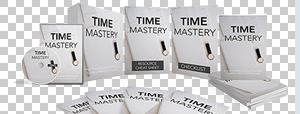Effective time management skills are central to mastering one's time by scheduling deep work sessions in advance, treating them as non-negotiable appointments. This involves creating a dedicated workspace, minimizing distractions, and setting clear goals for each session.
Breaking down large tasks into smaller, manageable segments can further enhance focus and prevent overwhelm. This approach allows individuals to make steady progress, even on complex projects, by concentrating on one segment at a time. It also allows for more accurate time estimates, and therefore, better scheduling.
In today's hyper-connected world, time mastery is not just a desirable skill, but a necessity for achieving meaningful results. This mastery, emphasizing the power of focused, distraction-free work.
One of the most common obstacles to time mastery is procrastination, often fueled by the constant barrage of notifications and the allure of shallow, easy tasks. Overcoming this requires a deliberate shift towards deep work, which involves dedicating extended periods to cognitively demanding tasks, free from distractions.
By consistently practicing deep work, individuals can train their minds to resist the urge to procrastinate and instead embrace focused concentration, leading to significantly higher productivity and a sense of accomplishment.
Finally, achieving time mastery requires setting realistic expectations. It's crucial to acknowledge that deep work is mentally demanding and cannot be sustained indefinitely.
Breaking down large tasks into smaller, manageable segments can further enhance focus and prevent overwhelm. This approach allows individuals to make steady progress, even on complex projects, by concentrating on one segment at a time. It also allows for more accurate time estimates, and therefore, better scheduling.
In today's hyper-connected world, time mastery is not just a desirable skill, but a necessity for achieving meaningful results. This mastery, emphasizing the power of focused, distraction-free work.
One of the most common obstacles to time mastery is procrastination, often fueled by the constant barrage of notifications and the allure of shallow, easy tasks. Overcoming this requires a deliberate shift towards deep work, which involves dedicating extended periods to cognitively demanding tasks, free from distractions.
By consistently practicing deep work, individuals can train their minds to resist the urge to procrastinate and instead embrace focused concentration, leading to significantly higher productivity and a sense of accomplishment.
Finally, achieving time mastery requires setting realistic expectations. It's crucial to acknowledge that deep work is mentally demanding and cannot be sustained indefinitely.
Additionally, it's important to be realistic about the time required to complete tasks, avoiding the tendency to underestimate the effort involved.
By setting achievable goals and allowing for flexibility, individuals can create a sustainable deep work routine that maximizes their productivity and minimizes stress. This approach promotes a more balanced and effective approach to time, allowing for both focused work and essential downtime, ultimately leading to a more fulfilling and productive life.

